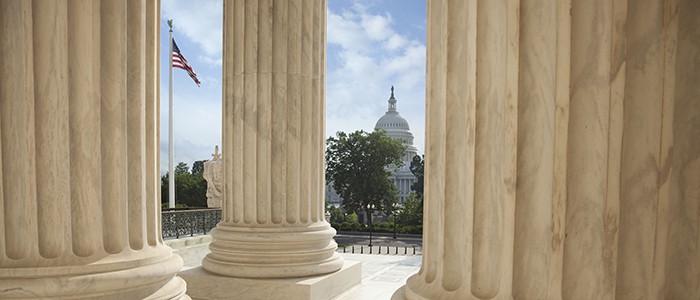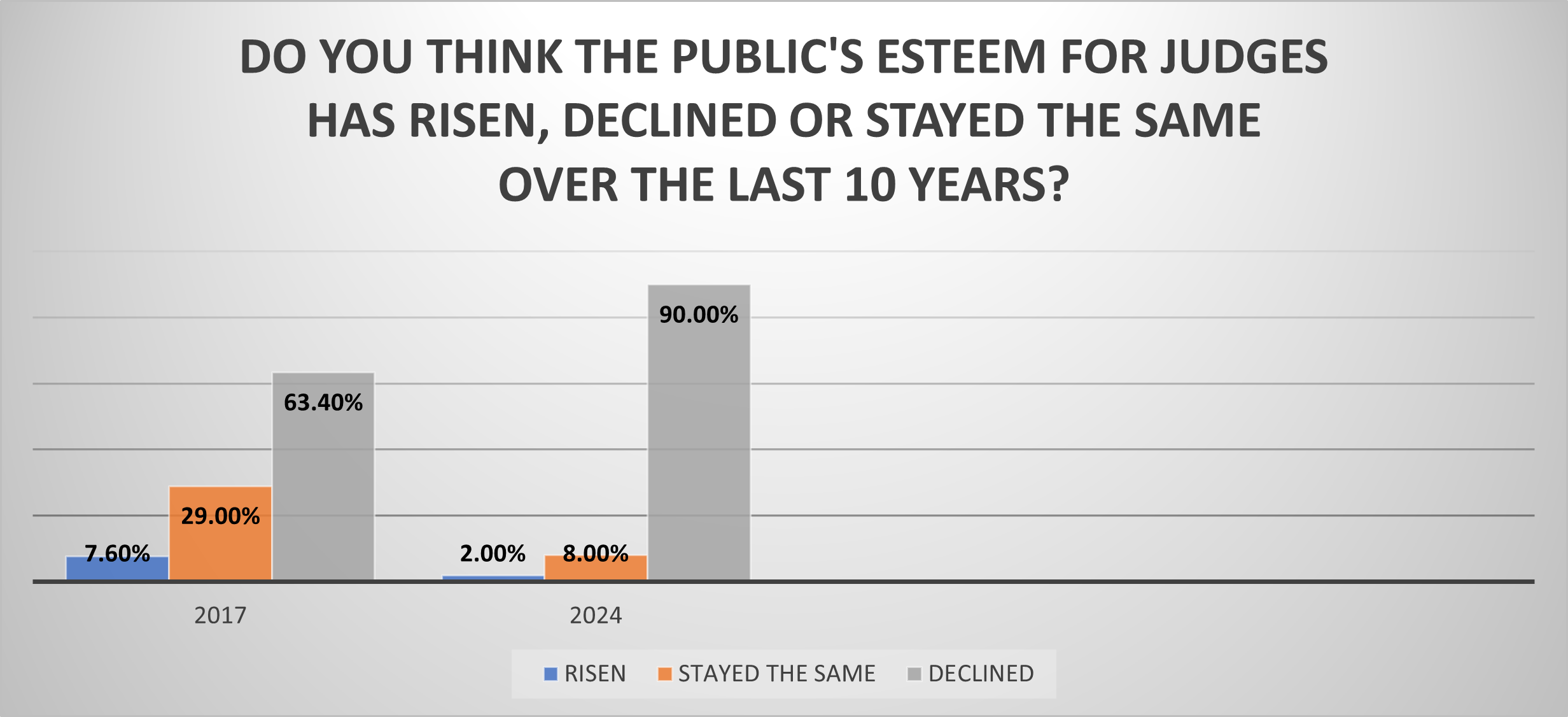
Our February Question of the Month asked judges if they believe the judiciary is, in practice, a coequal branch of the government, as the Constitution envisions.
The overwhelming opinion of the NJC alumni who responded was “no.”
More than 77 percent of the 615 who voted in the informal, e-mailed survey said they feel the judiciary is not, in practice, equal to the executive and legislative branches today.
Among the 230 comments, the most common refrain was that the judiciary can’t be co-equal when the legislature controls its funding.
“Since the judiciary’s budget is decided by the legislature, it is unsurprising that they routinely use control of the purse strings as a way to exert political pressure on the courts,” one judge commented anonymously, as was the case with most of the comments.
Nearly half of all comments referred to issues related to funding. Some judges cited specific examples from their state. Multiple stories came from Iowa, where reduced funding has led to a 10 percent cut of the judicial branch’s workforce this year. It’s feared that additional cuts could eliminate court services in 30 of the state’s 100 courthouses. One judge from Iowa commented that the legislature is trying to “starve” Iowa’s judiciary.
Another common complaint was that the other branches view the judiciary as an agency or department under their control. For example, one judge said the executive branch has demanded that the judge’s court generate more revenue—often accomplished by increasing filing fees and other court fees.
Some judges cited “retaliatory” bills in their state houses meant to undermine the judiciary. A recent report from the Brennan Center for Justice said that legislators in at least 14 states are considering bills that would “diminish the role or independence” of the judiciary in 2018. For example, state legislatures are considering bills that would restrict the judiciary’s power to find state legislative acts unconstitutional.
Some judges vowed to fight back.
“Separation of powers is the linchpin of our democracy,” wrote Philadelphia Court of Common Pleas Judge James Murray Lynn. “It is the sworn duty of every judge to ensure that the judicial branch remains strong and independent on their watch.”
Other judges despaired of Congress’s politically charged confirmation hearings and the president’s criticism of judges. They said such behavior distorts the public’s view of the judiciary.
A year ago, an NJC Question of the Month asked if judges felt public esteem for judges had risen, fallen or stayed the same in the past 10 years. Sixty-three percent said they thought it had declined.
* Each month the College emails an informal, non-scientific, one-question survey to its more than 12,000 judicial alumni in the United States and abroad. The results summarized in the NJC’s monthly Judicial Edge, are not intended to be characterized as conclusive research findings.

This month’s one-question survey* of NJC alumni asked, “How is 2024 shaping up for you and your court?�...

RENO, NV (PNS) – As they eye their inaugural football season this fall, the Gaveliers have question marks...

RENO, Nev. (March 8, 2024) — In what may reflect a devastating blow to the morale of the judiciary, 9 out...

In what may reflect a devastating blow to the morale of the judiciary, 9 out of 10 judges believe the publi...

RENO, Nev. (Jan. 26, 2024) — The nation’s oldest, largest and most widely attended school for judges �...